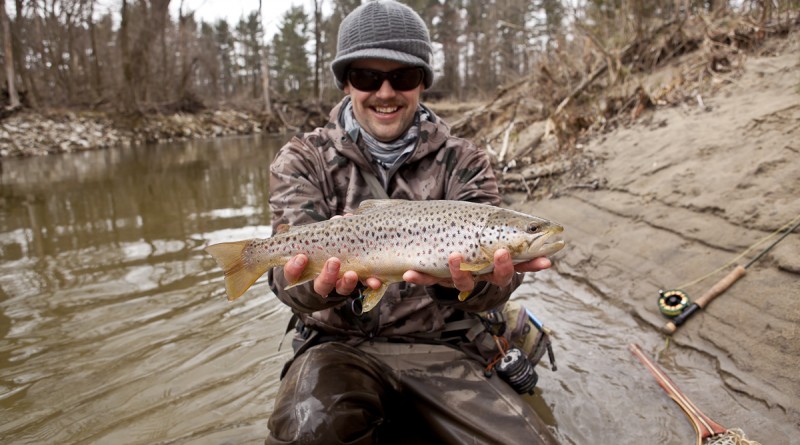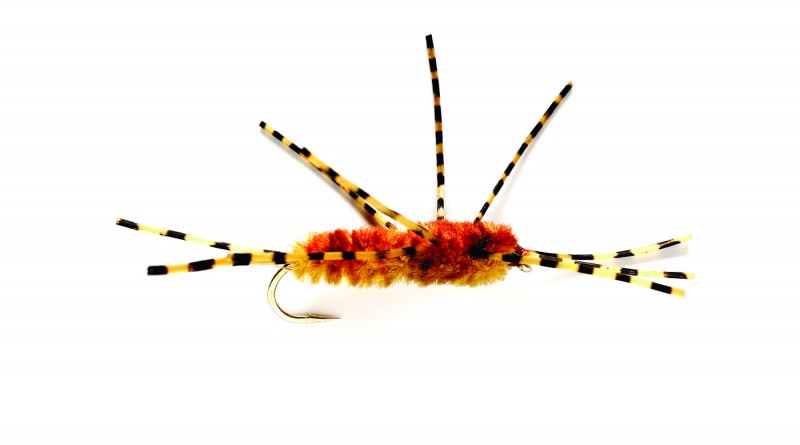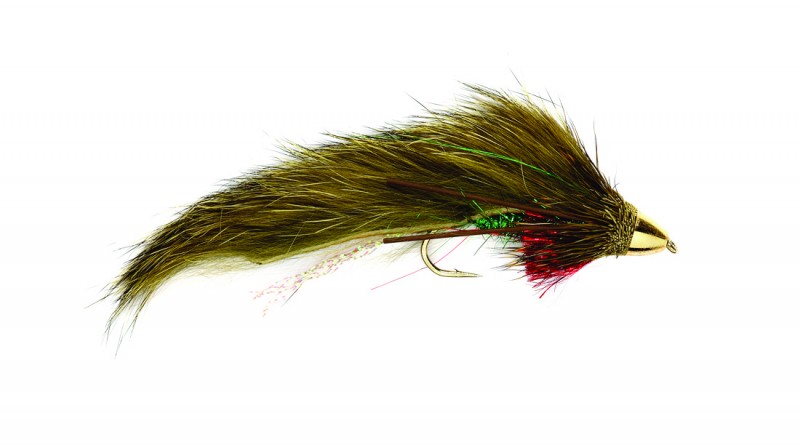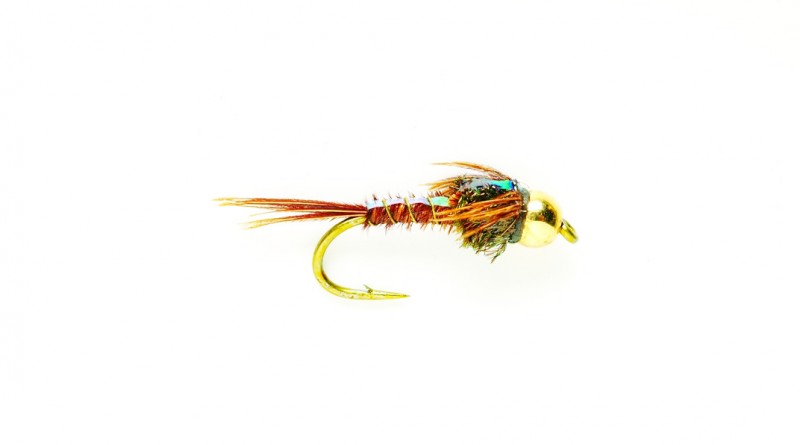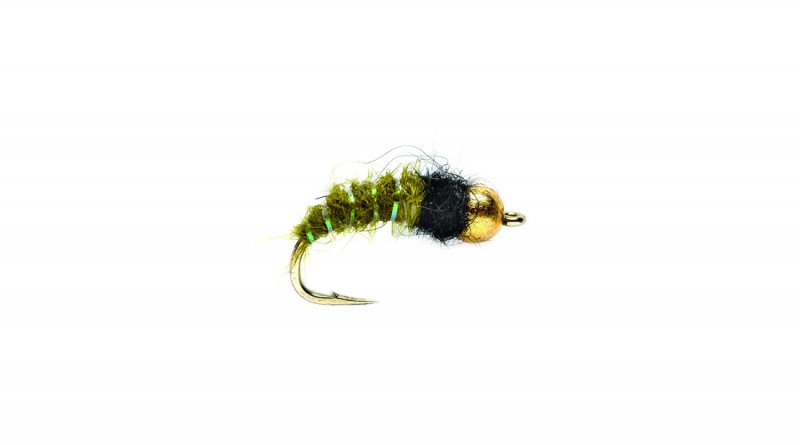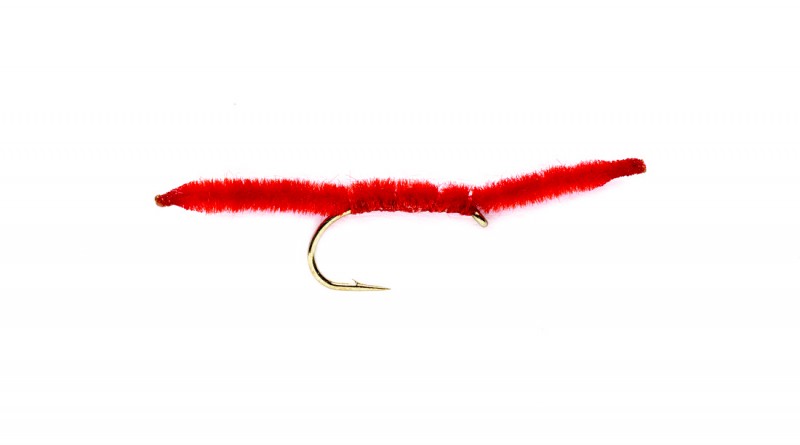Jesse Haller’s Five Favorite Flies & Where To Fish
Meet Jesse Haller, an R&D expert at Orvis and one of Vermont’s best candidates for the U.S. Fly Fishing Team. Here’s his story, his advice for where to fish early season and his five favorite flies.
From splashing around in creeks near his childhood home in Wisconsin to guiding in Summit County, Colorado to casting lines at home in the Champlain Valley, Jesse Haller lives to fish. This summer, he’ll be trying out for a spot on the national fly-fishing team in Lake Placid, N.Y. Haller, 35, works at Orvis in Manchester designing the fishing gear of tomorrow.
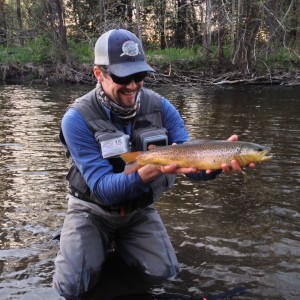
VS: Where can we find you on opening day? Or is that none of our business?
JH: I’ll say probably in the Middlebury area. The Otter Creek is a very special river and its tributary rivers, which have been closed all winter, will be opened and they are fantastic. The New Haven, the Middlebury, the Neshobe, Furnace Brook and Cold Mill are all in that watershed and make for amazing fishing. I will visit all of them over the weekend.
VS: When’s the best time of year to fish in Vermont?
JH: An argument could be made for just about any time of year. If we’re talking about trout, I like spring a lot. May is exciting because that’s when the bug life starts to take off and we start to see lots of fish feeding on the surface. I like summer to fish for northern pike, large-mouth or small mouth bass or carp. The fall is really fun because it’s technical and the water is low. With a mild winter, the water stayed a little warmer and the fish were active. The Otter Creek is open year-round and we were able to catch fish in November and December.
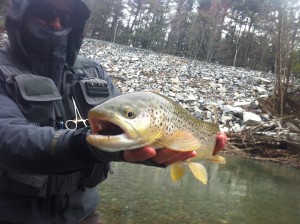
VS: Describe your introduction to the guiding world. There must be a steep learning curve if you’ve never guided in a new place.
JH: When I moved from Durango, Colo. to Summit County I started working for a small outfitter, which led to working for a bigger outfitter and eventually I was guiding five to six days a week. At first they like to keep you in the stables for a year or two, learning the ropes and helping out at the shop. Once you have the ability to fish, you learn the flies, the water and how the fish like to hold. My father and my fishing buddies added their own thoughts and opinions and inspiration. I took a little bit of this and that and became the angler and guide I wanted to be. I’ve found guiding to be one of the most rewarding experiences. A lot of times success in guiding is measured by how many fish a client catches, but we’ve found it’s the entire experience that customers value.
VS: How does the fishing culture in the northeast and Vermont compare to the other places you’ve lived and fished?
JH: In the Midwest I wasn’t that connected to the fishing culture. It was just part of what you did. Now, it’s more tangible with social media, you can see gatherings, fly-tying nights and movie screenings. Out west was a fishing mecca and a lot of the trout culture is driven from there. There were so many trout bums like me filling up at gas stations at six in the morning with drift boats on trailers. It was something that I had never seen before. When I first came to Vermont, there was a still a lot of history and tradition, but that culture hadn’t quite taken off yet. Thanks to events like the Otter Creek Classic [scheduled for April 9 -10 in Middlebury] and social media, the barriers between anglers are collapsing and more people are reaching out to each other.
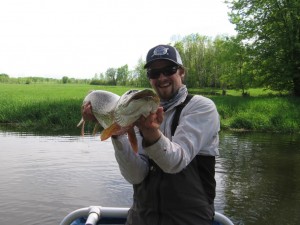
VS: Was fishing a large part of your family while you were growing up?
JH: Absolutely. My dad was a big trout angler and we grew up on the eastern edge of what’s known as the “Driftless Region,” where the glaciers stopped. That southwestern area of Wisconsin is known for high-quality trout streams. My dad was always getting me outside from a very young age.
VS: What are some of your favorite stretches of water?
The Otter Creek through Middlebury is very special. It does get warm in the summer so we have to be careful when the dissolved oxygen content gets too low. I’m usually not able to fish for trout in July and August, but the fishing along the Otter is some of the best I’ve had in Vermont. What I call the “Big Three” — the Otter, the New Haven and the Middlebury—are my home pieces of water.
VS What are your 5 favorite fliest and can you show them to us?
VS: You’ve mentioned trout as a favorite kind of fish and the growth of “trout culture.” What’s it about this fish that you find so alluring?
JH: Trout don’t live in ugly places. They live in cold, clean water and I’m lucky to live in a place with cold, clean water. There is something about trout I can’t put my finger on. They are special fish and our canary in the coalmine. When we start having trouble with trout in the watershed then we know something’s wrong. If you’re lucky enough to be standing in a stream with trout around you, most likely it’ll be pretty nice around you too.
VS: What are some of the biggest challenges you see anglers facing in the coming years? What has to be done to overcome them?
JH: Clean water is always going to be a challenge and as anglers we have a responsibility. There are lots of problems, from runoff issues to destruction of riparian zones [river banks] to inadequate water treatment. You always have to look upstream. It’s something we need to be cognizant of—whether it’s how you dispose of your motor oil or how you handle the shrubs next to the creek behind your house.
VS: Fly-fishing, seems to be one of those activities that draws a core group of followers. How can it attract more people?
JH: That’s the age-old question. Some people hold the view that fly-fishing is too expensive and while it’s always possible to spend too much, it’s now more affordable. Fishing is also viewed as being very hard to learn and outreach is another important area. The New Haven River Anglers Association emphasizes making fishing more accessible and there are clinics or programs like Trout Unlimited’s Trout In The Classroom program. Like golf, fishing is a sport that takes an afternoon to learn but a lifetime to master. It’s a great journey.
VS: What is it you do at Orvis?
JH: A product development specialist is someone who develops new products specifically for fly-fishing. There are many other developers and I work with fly-tying materials and the accessories. There are all these little problems that we’re striving to solve. We don’t spend all our time fishing but we collaborate with anglers all over the world, developing flies that will be used all over the world, be it for bonefish in the tropics or big northern pike in Ontario.
JESSE HALLER’S 5 Favorite Flies for Early Season

